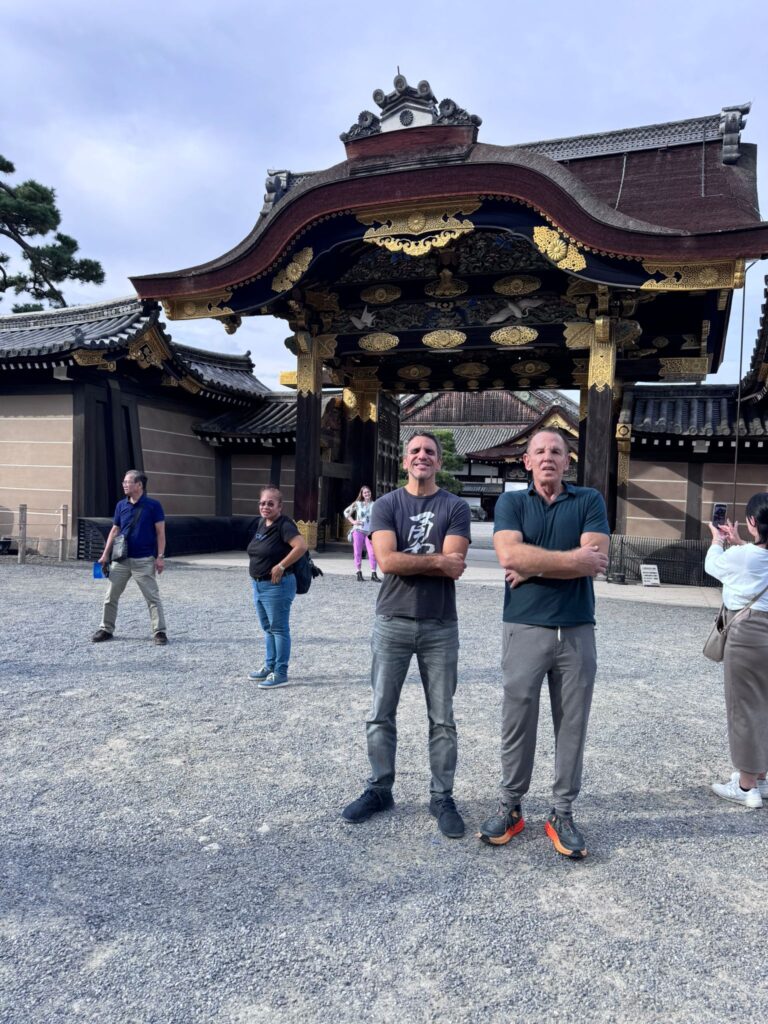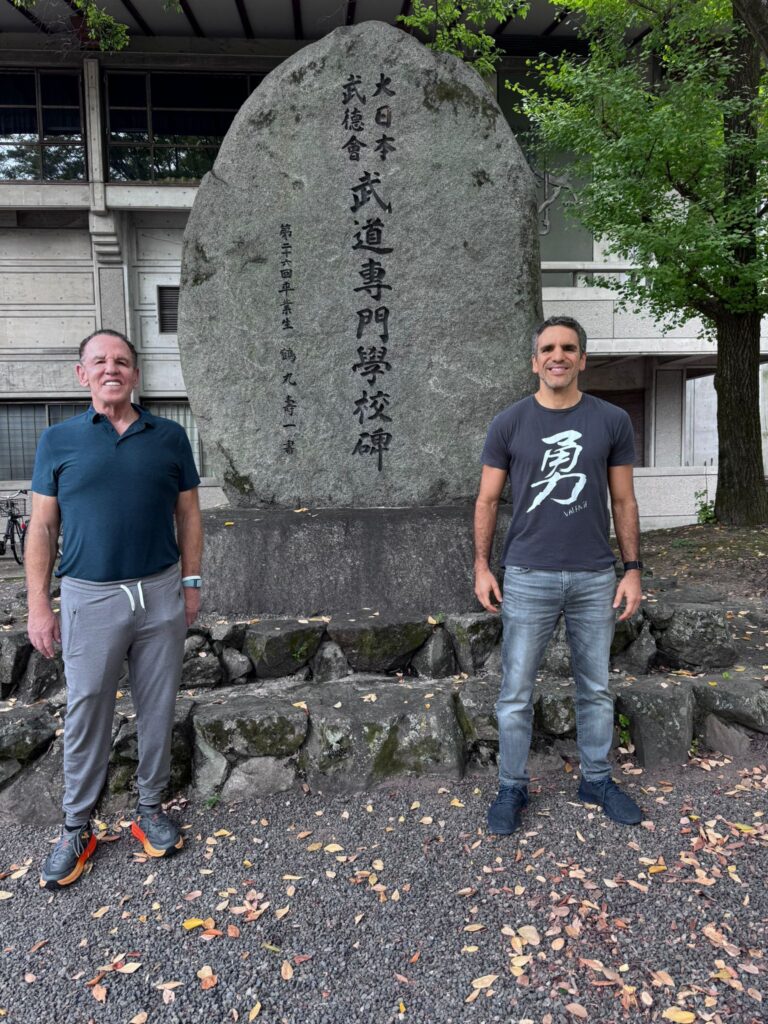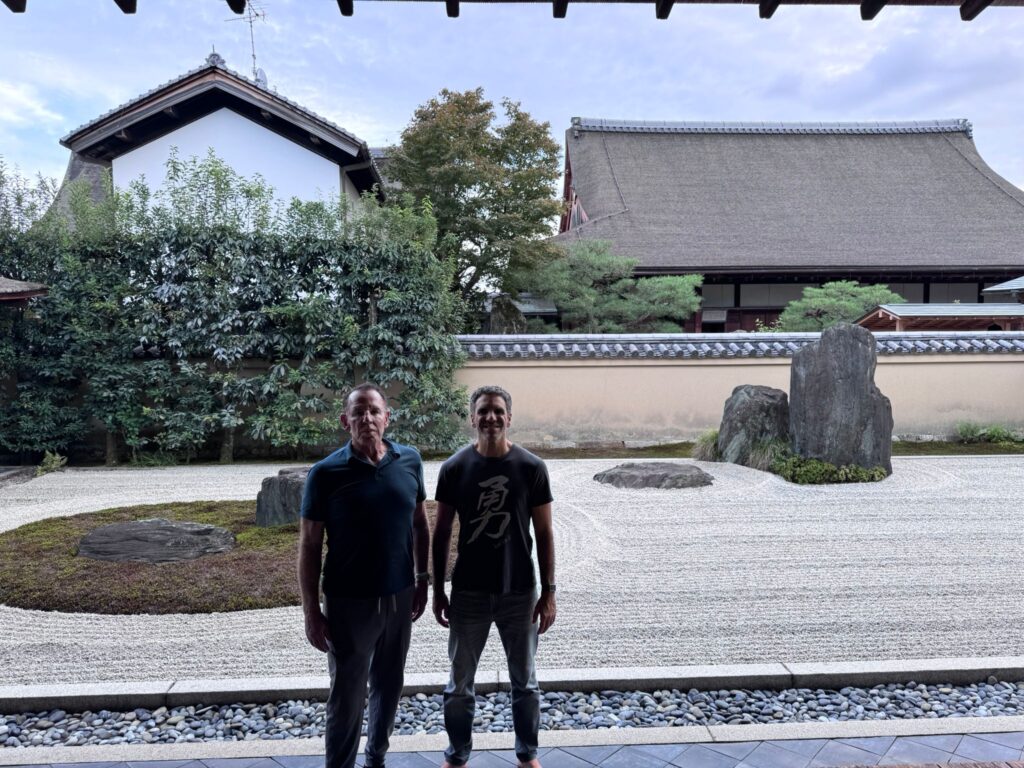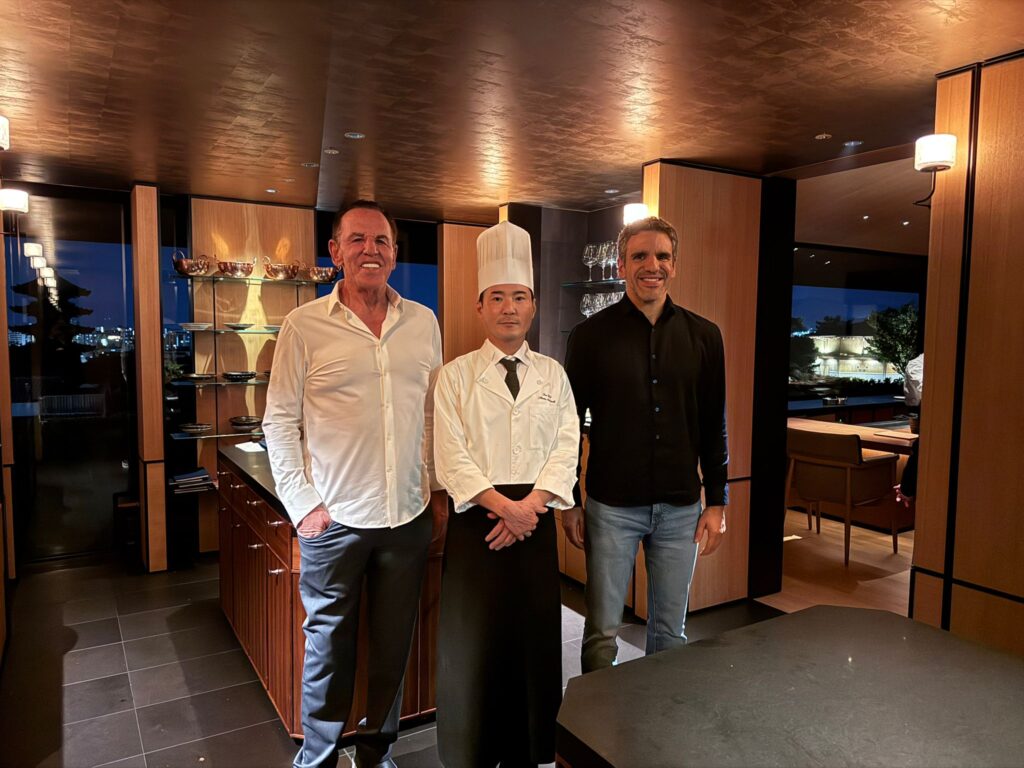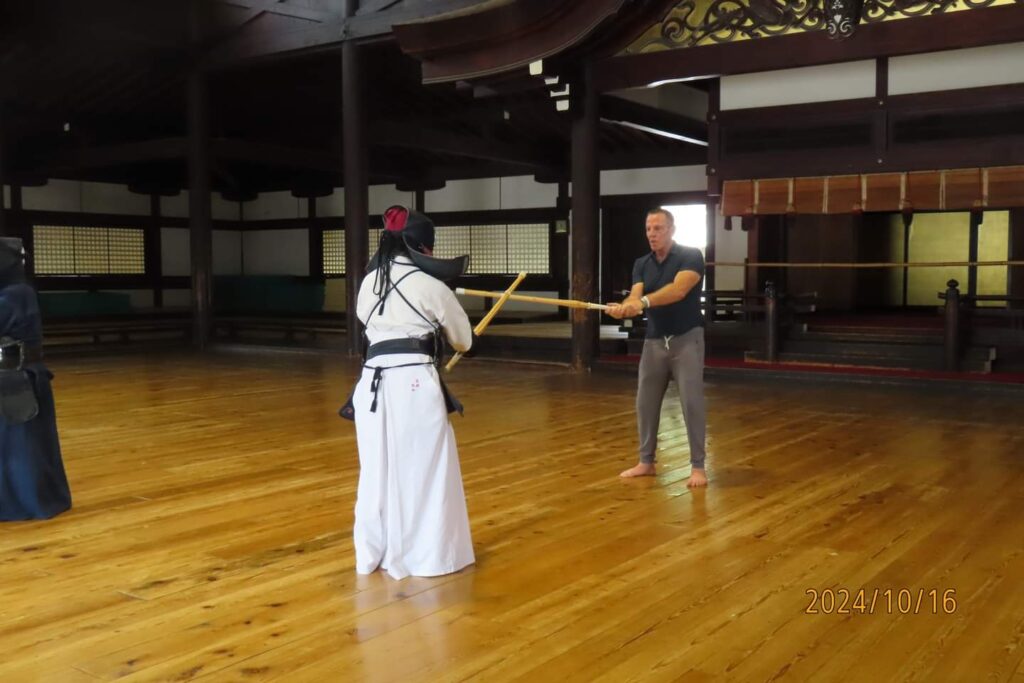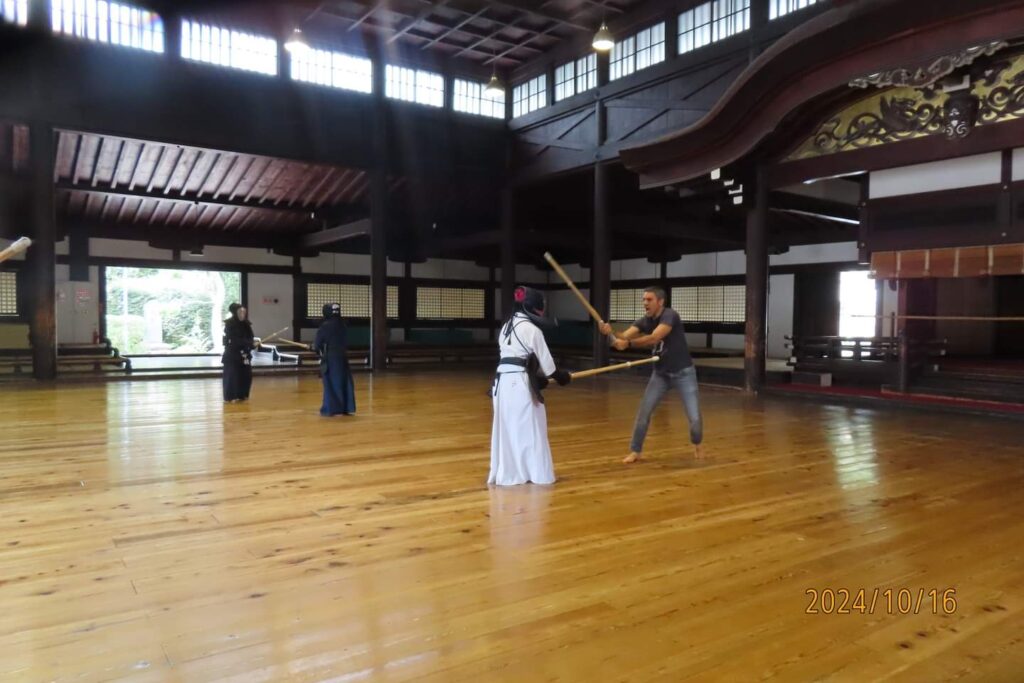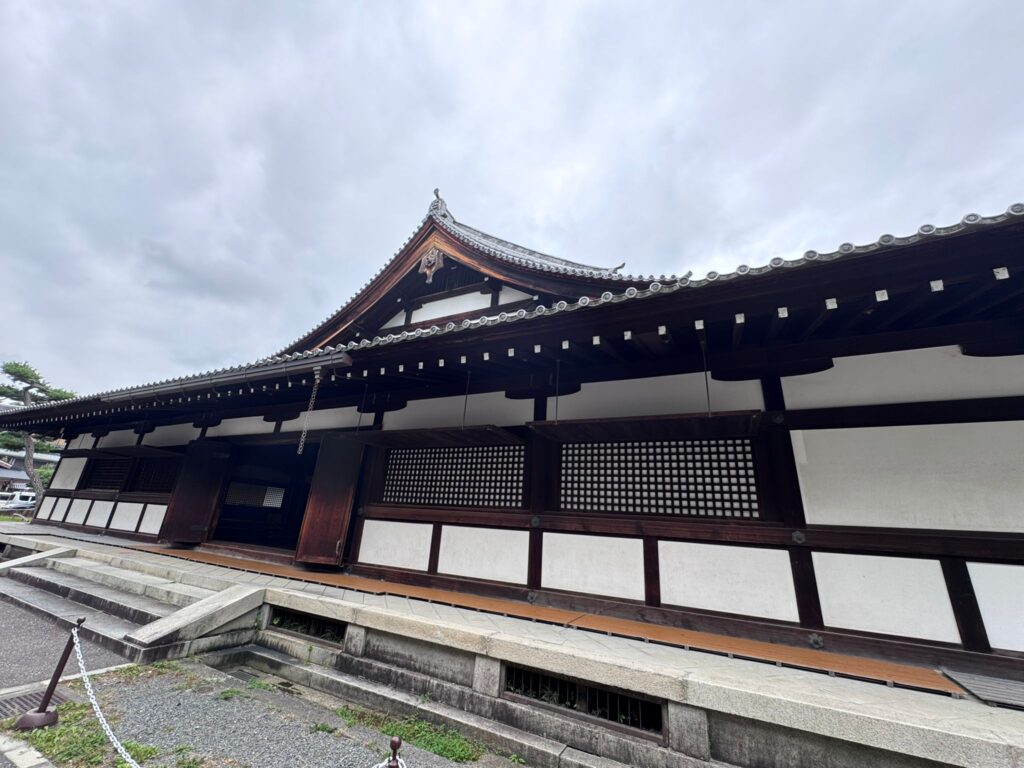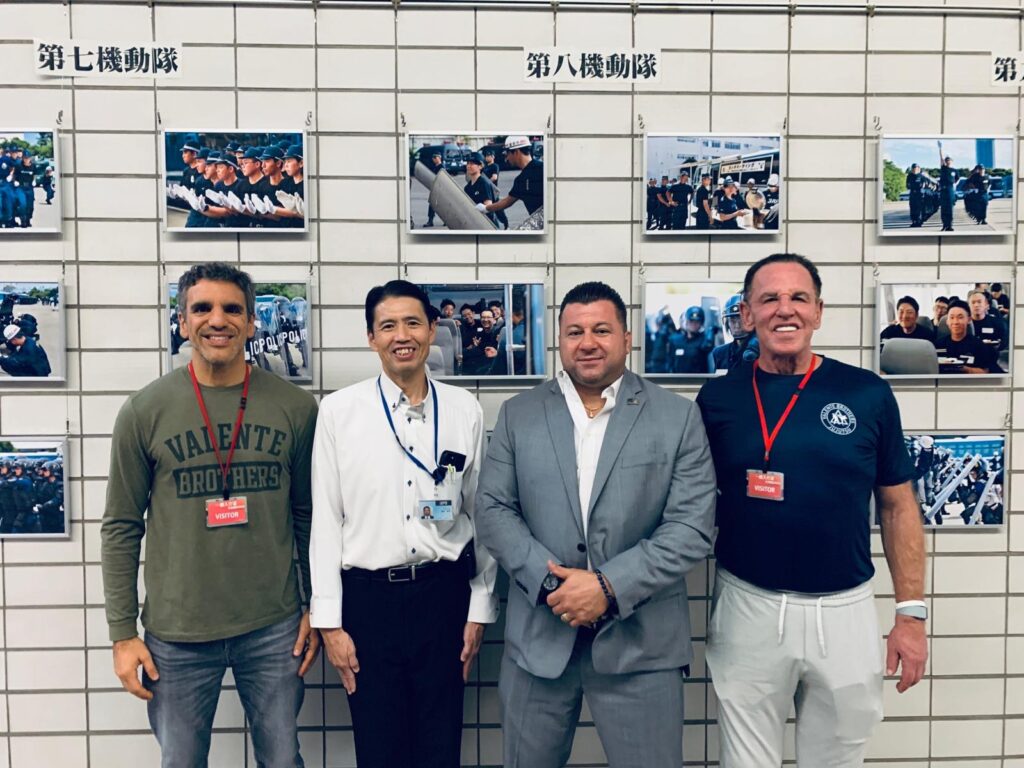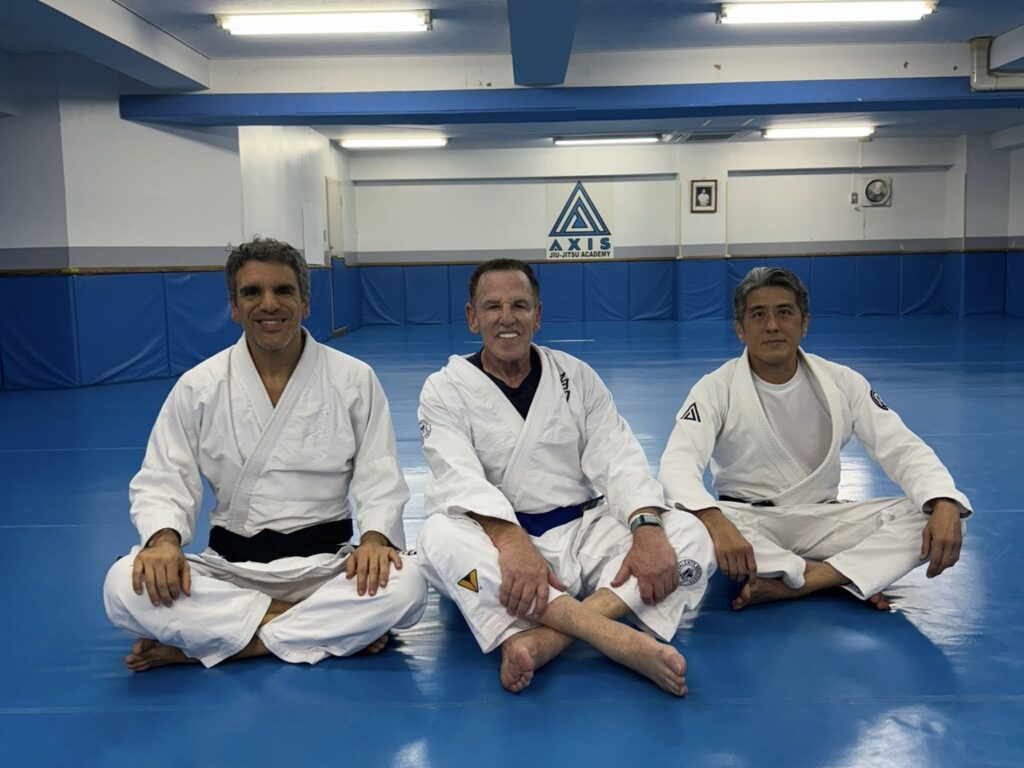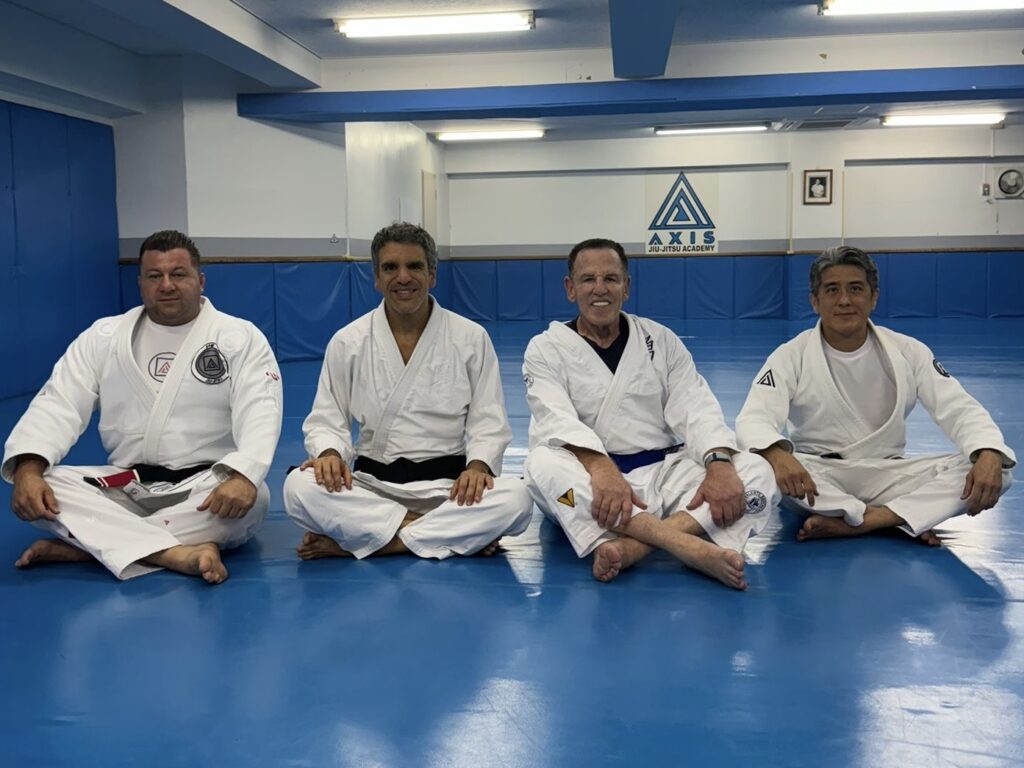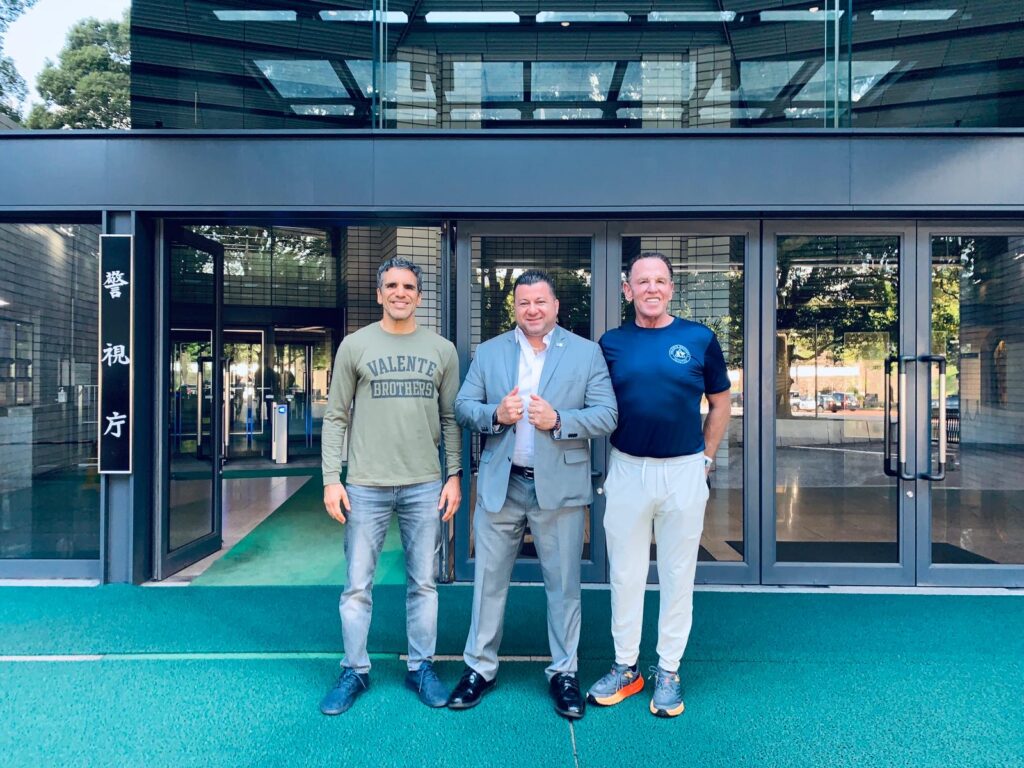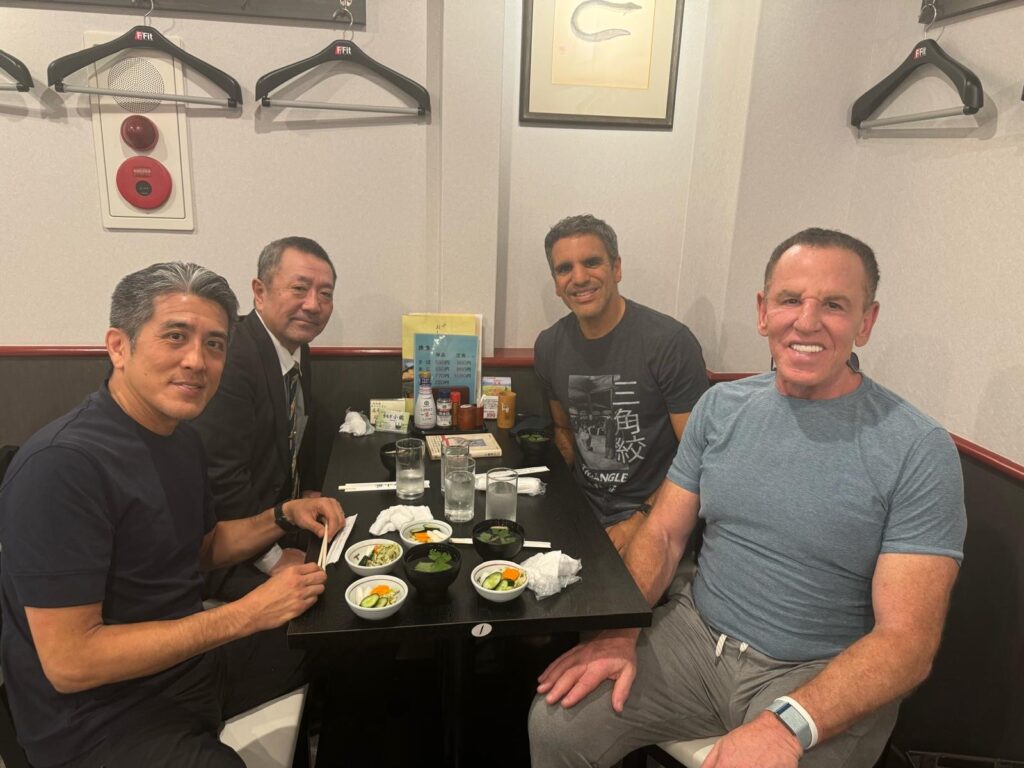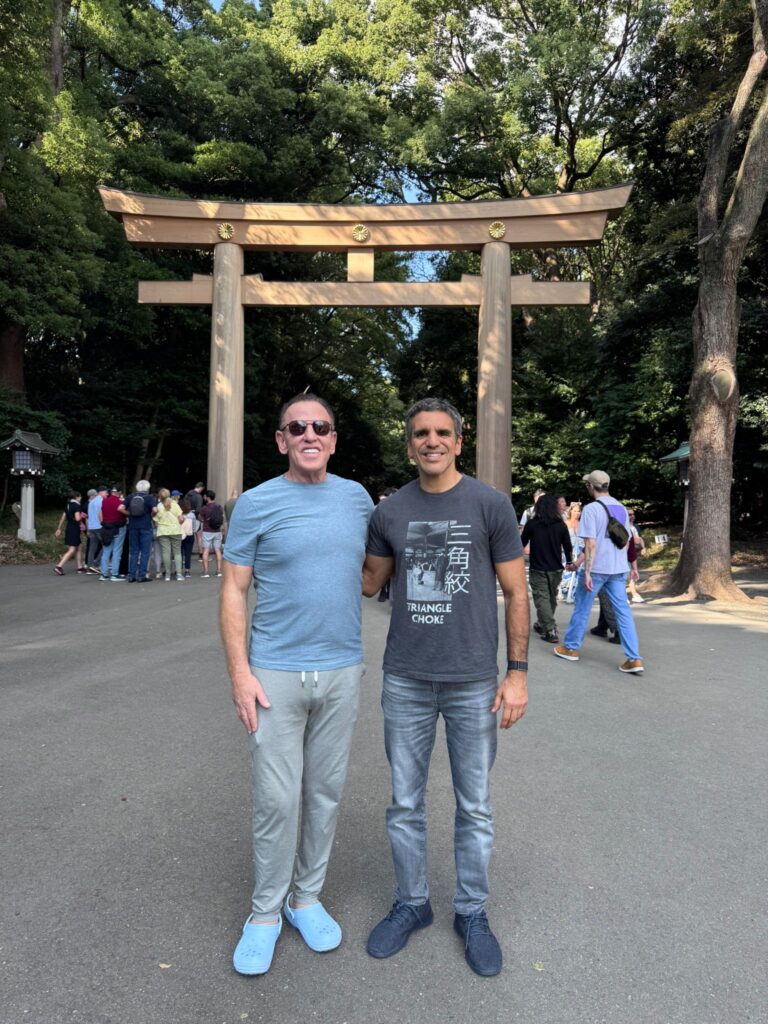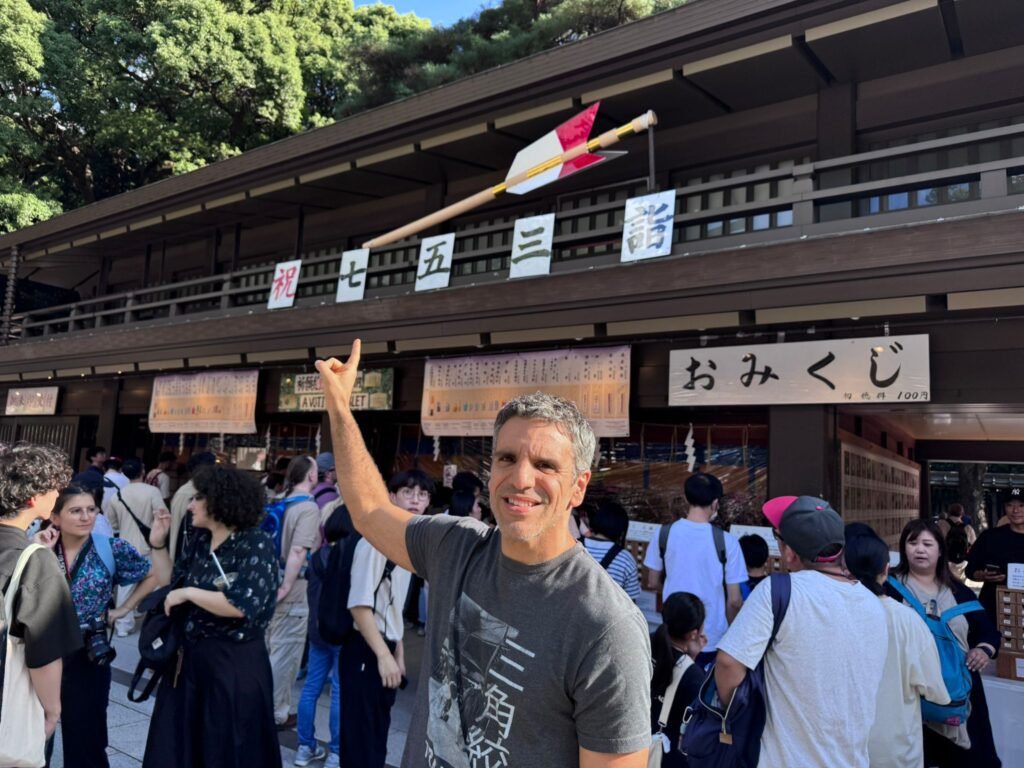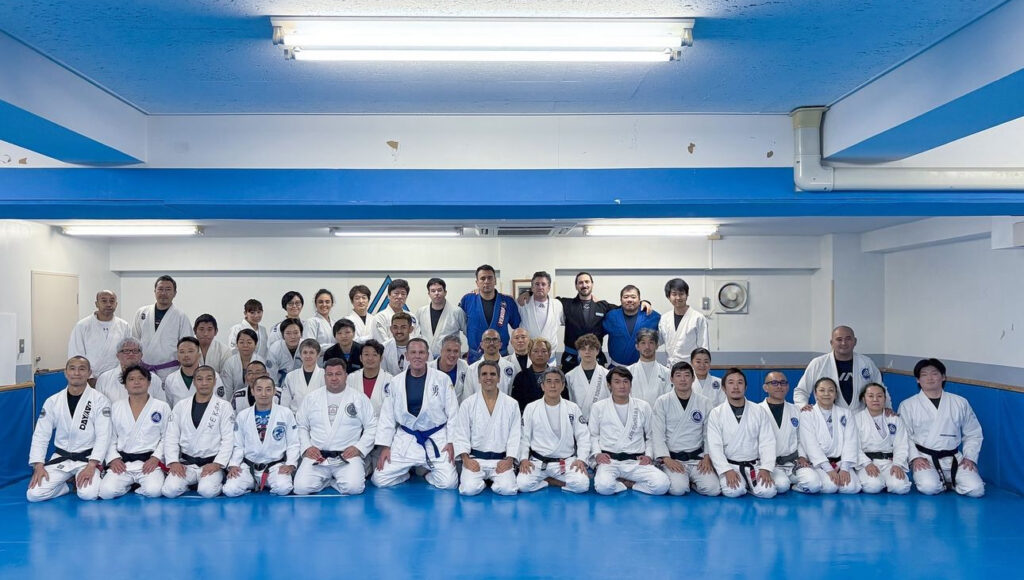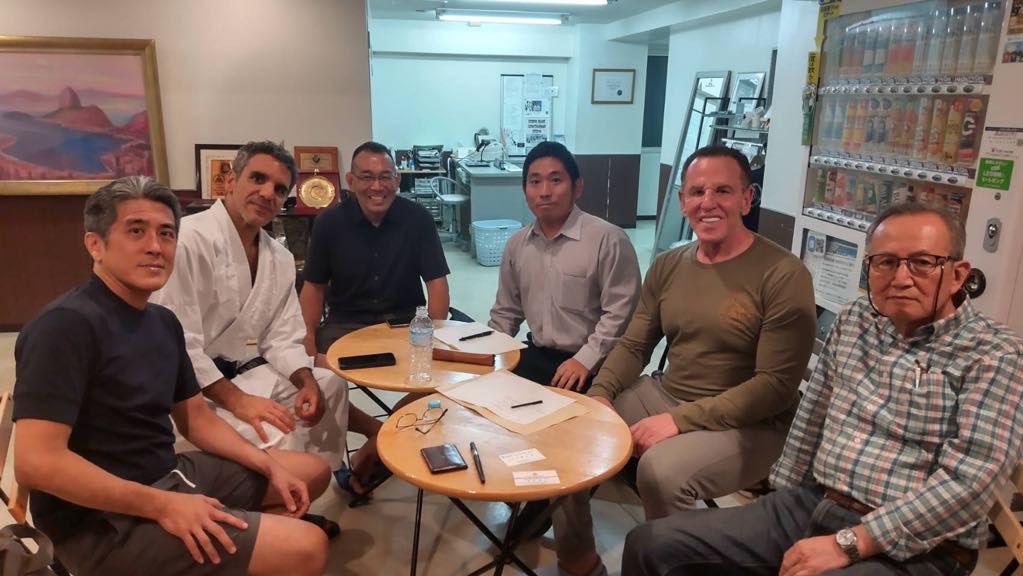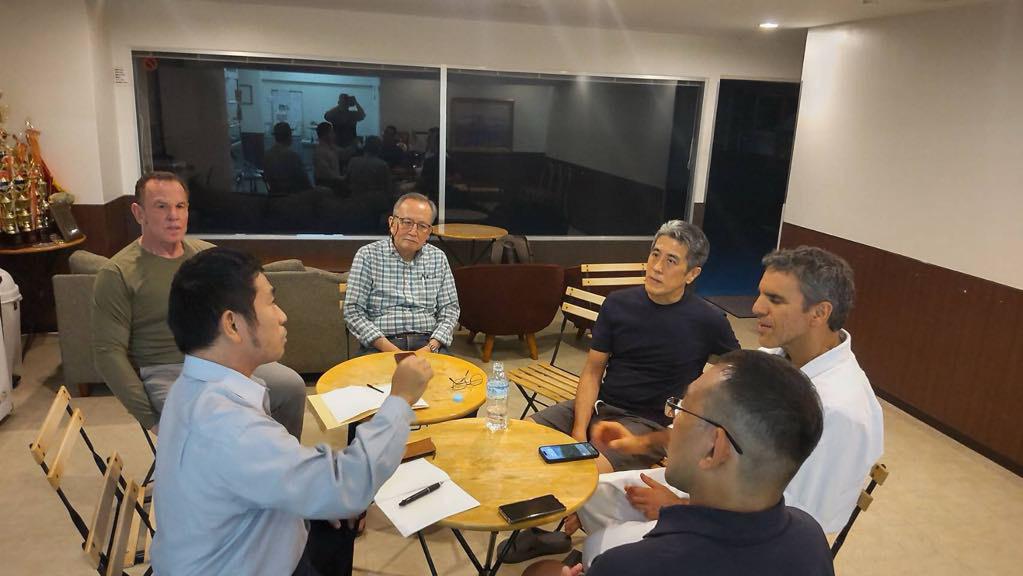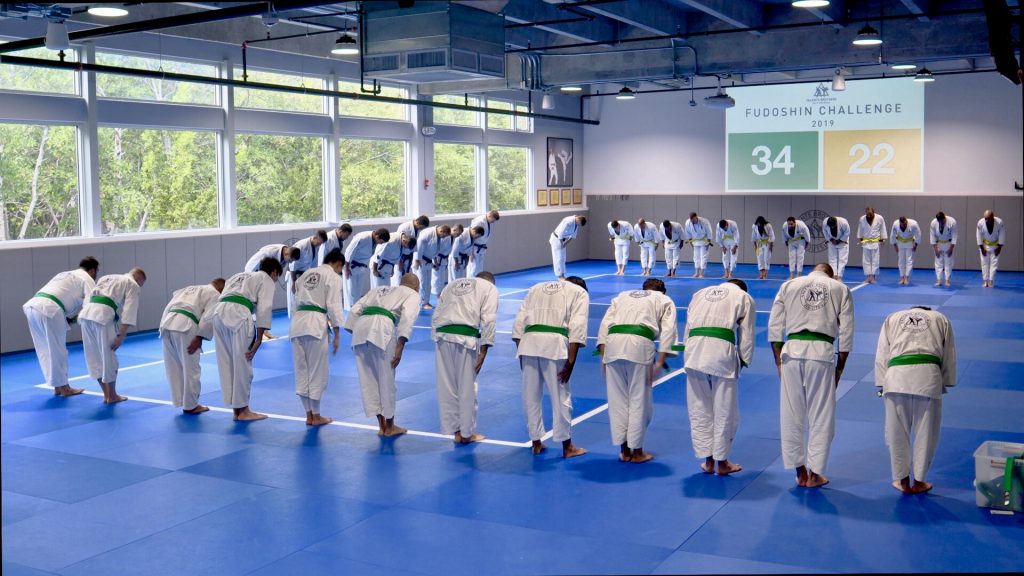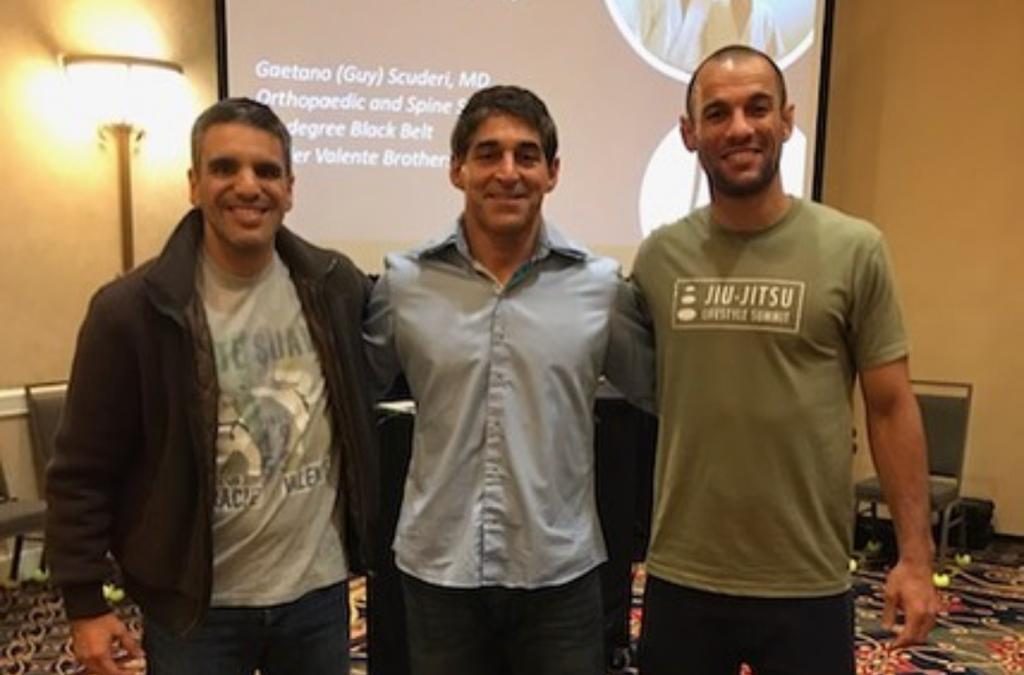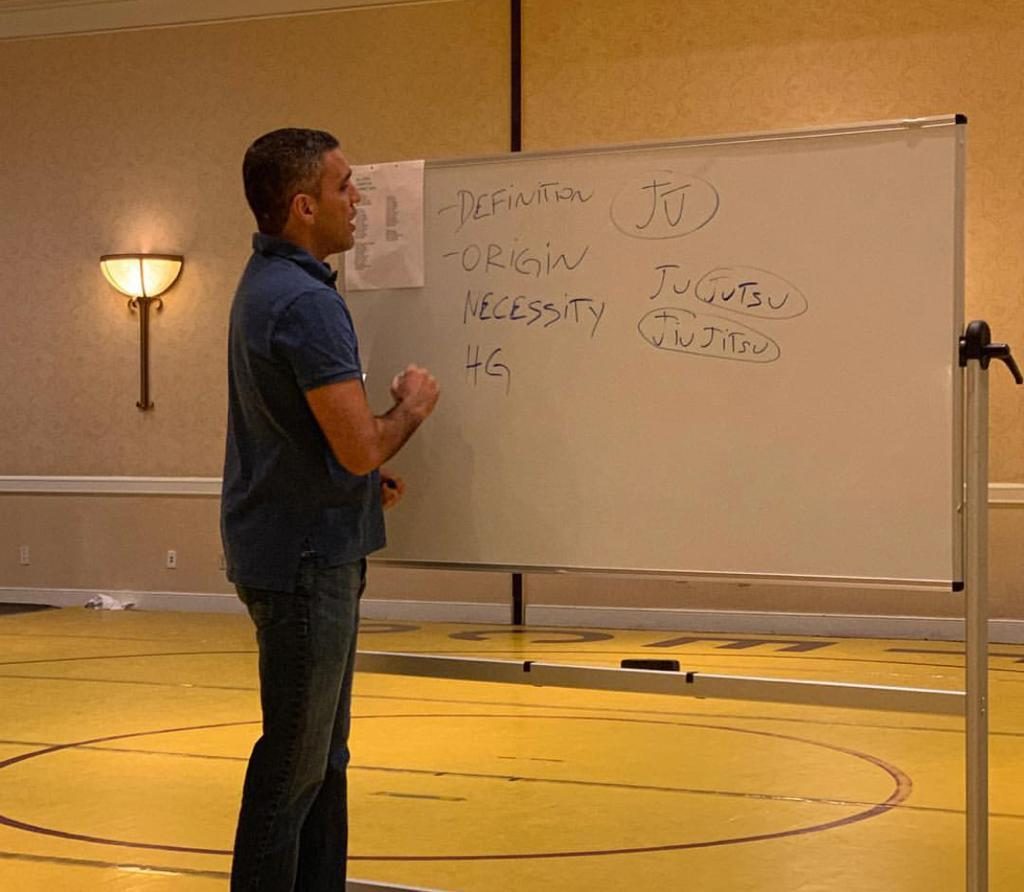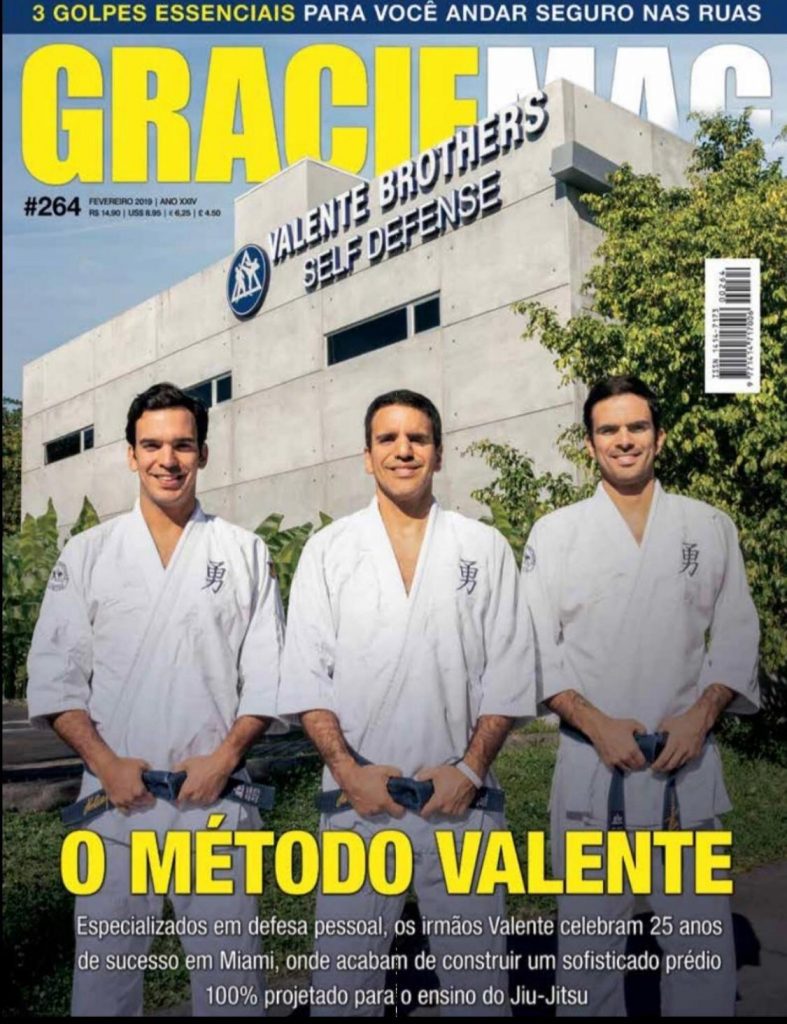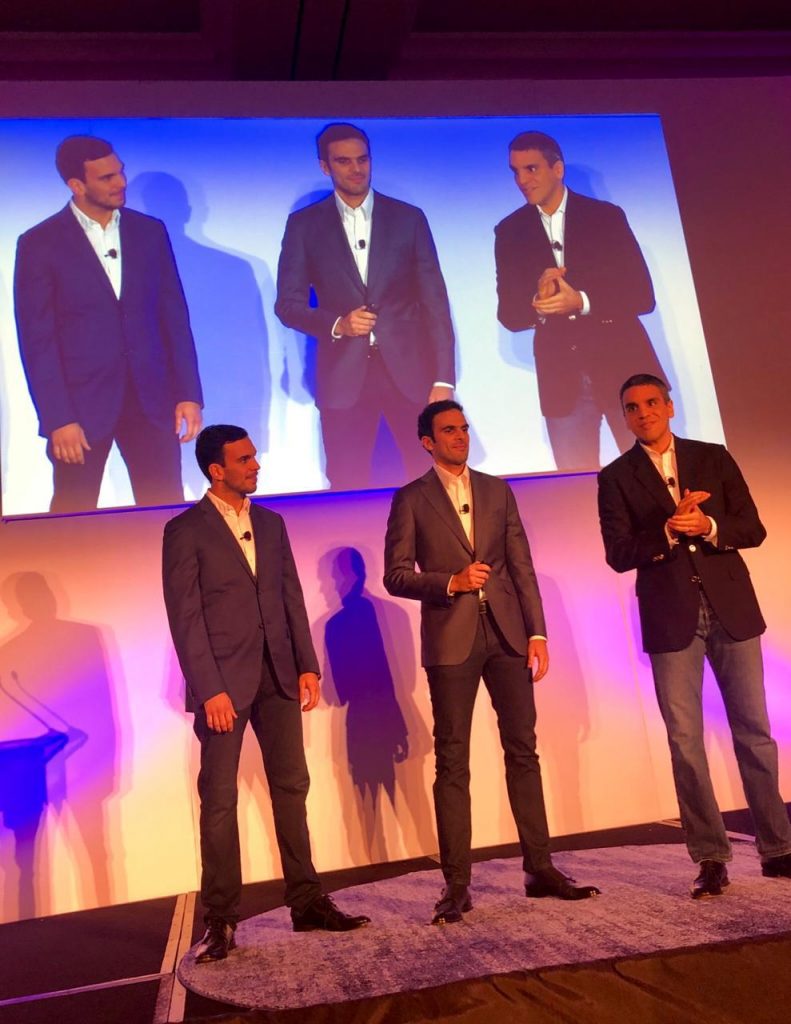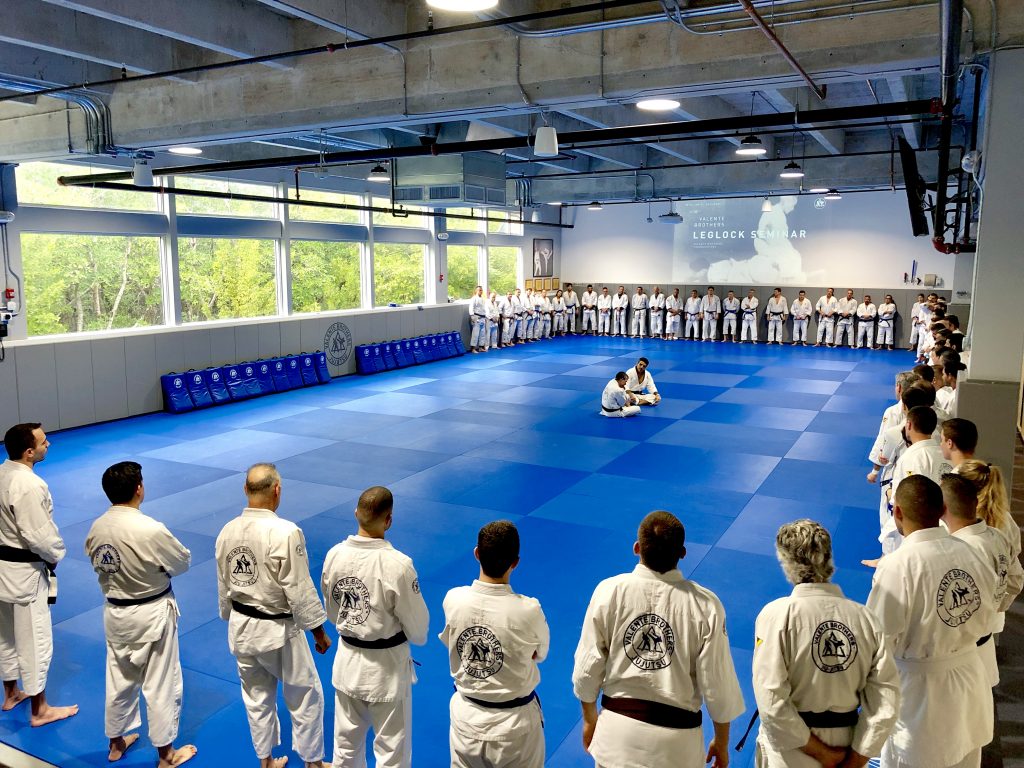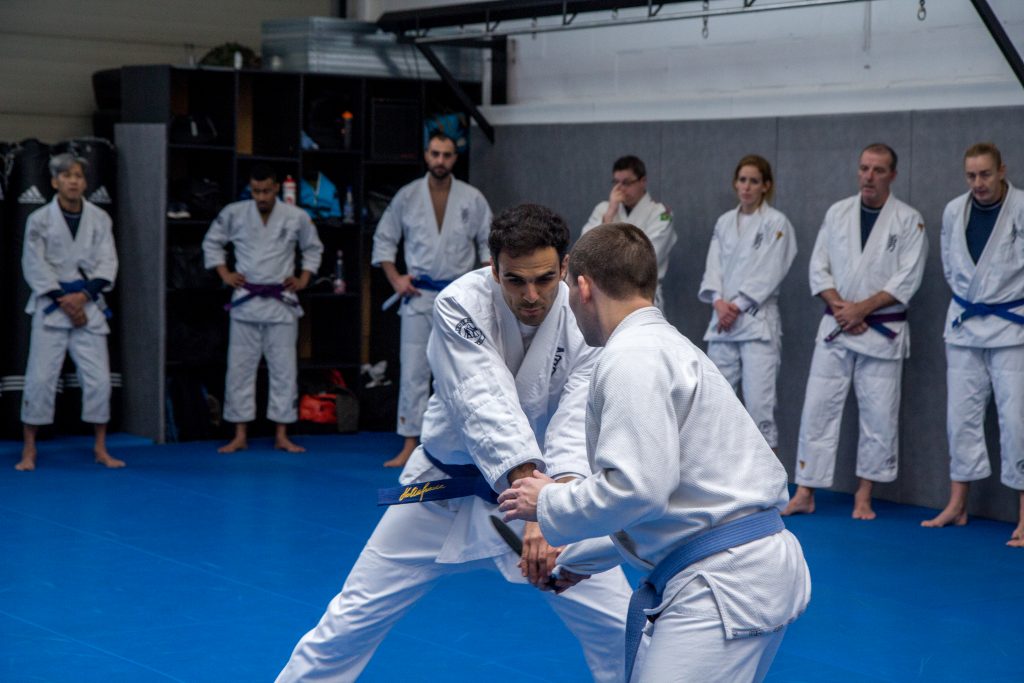The day started with breakfast at the beautiful Park Hyatt Hotel in Kyoto. After their meal, Pedro Valente and Ted Schwartz made their way back to the Butokuden to observe Kendo training. There were two classes in progress—one private session and a group class for senior trainees. Despite their ages, with all the practitioners being over 80 years old, their energy, great footwork, and impressive movement were remarkable. It wasn’t until they removed their helmets that Pedro and Ted realized they were not middle-aged practitioners. The teacher informed Pedro and Ted of their remarkable health and energy, especially considering they were all beginners, having trained for less than two years.
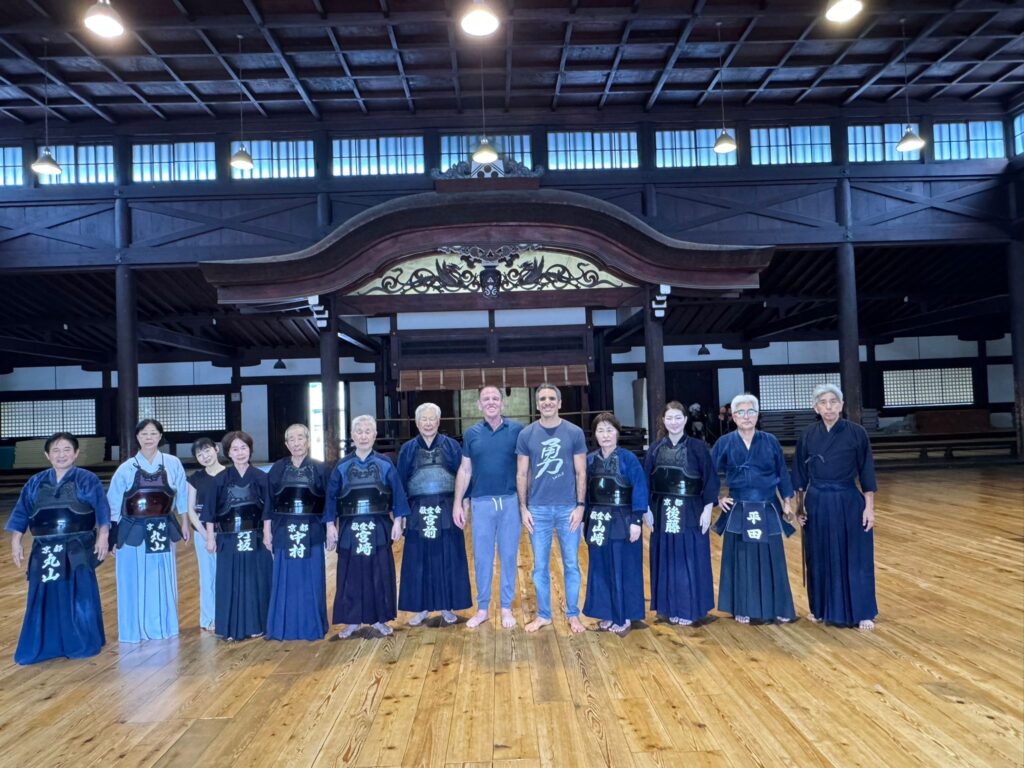
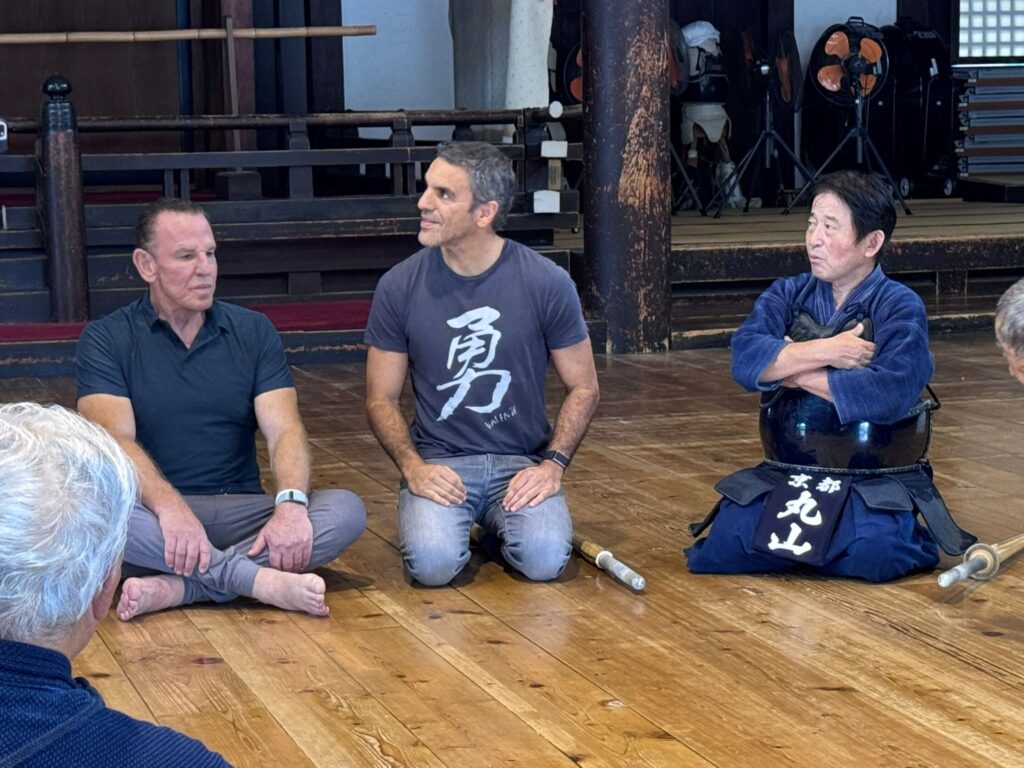
Pedro Valente and Ted Schwartz introduced themselves to the teacher, who was intrigued by Valente Brothers in Miami. After showing him some photos, they were graciously invited to participate in the class. Without the proper training uniform, they happily accepted the offer and engaged in a Kendo session. Practicing with wooden swords, they struck towards the head, wrist, and torso, moving in different angles.
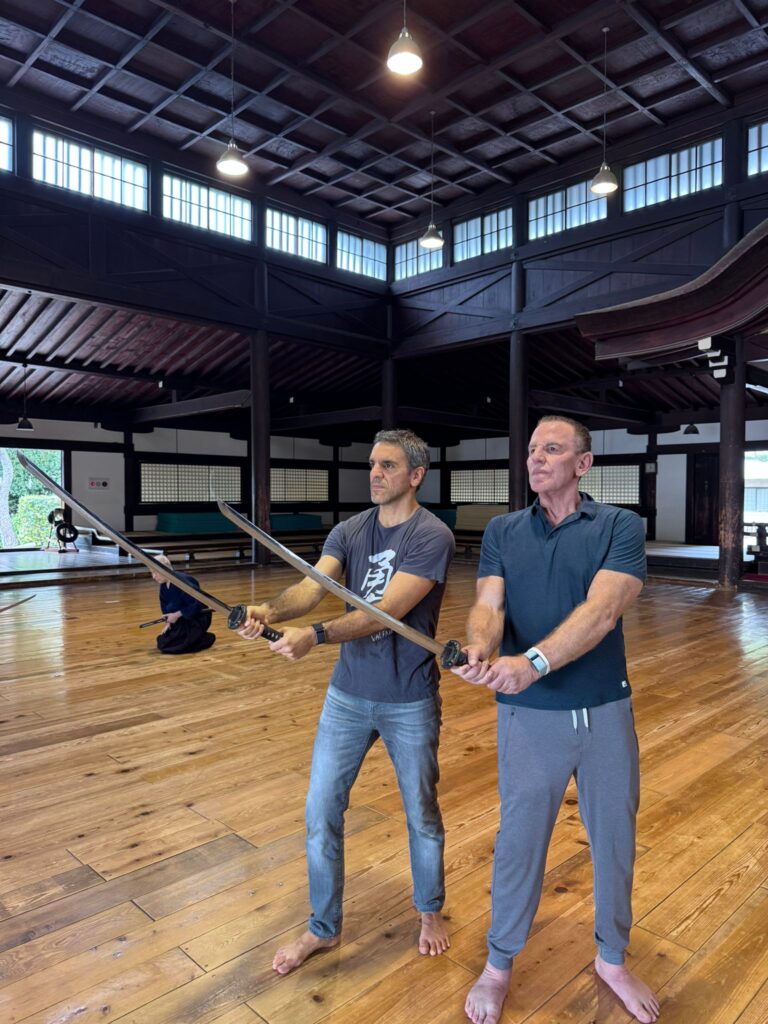
It was an incredible experience for both of them. Before leaving, they had a friendly conversation with the students, during which the Pedro shared the story of their work in Miami, teaching Japanese culture, philosophy, and martial arts.
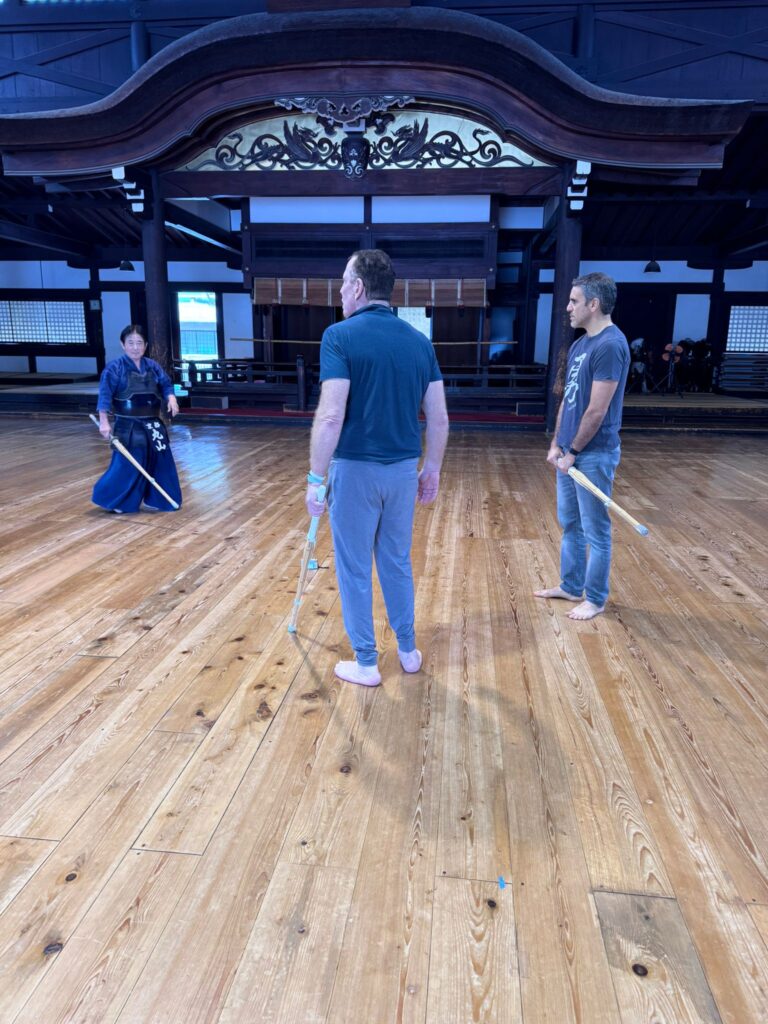
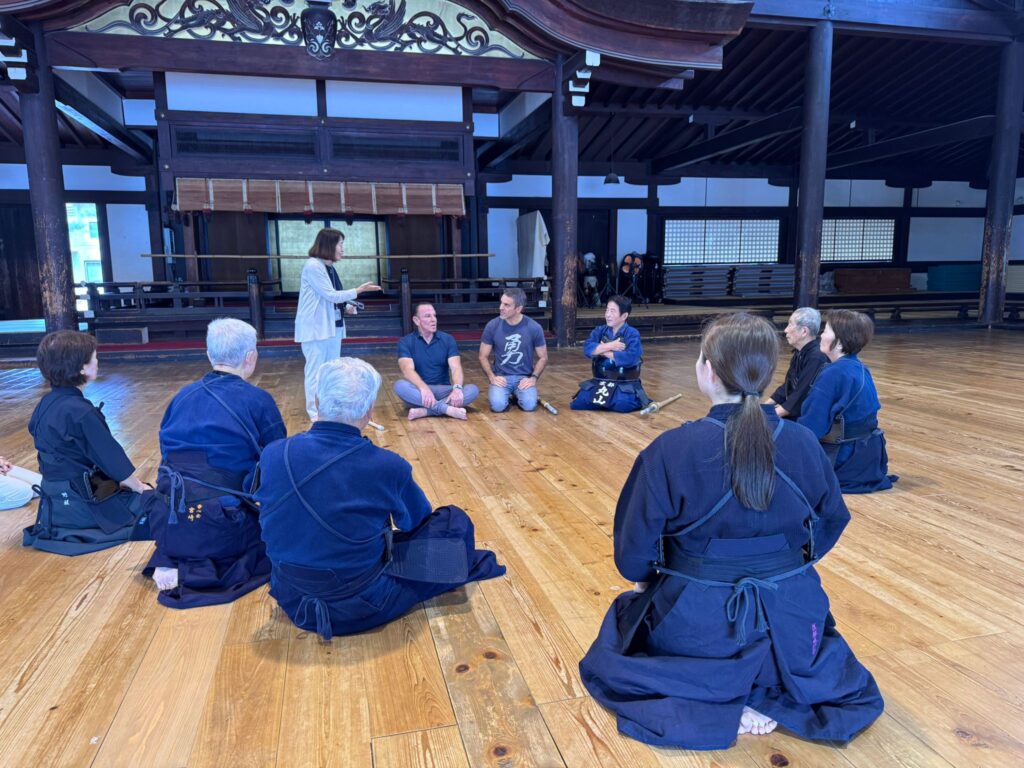
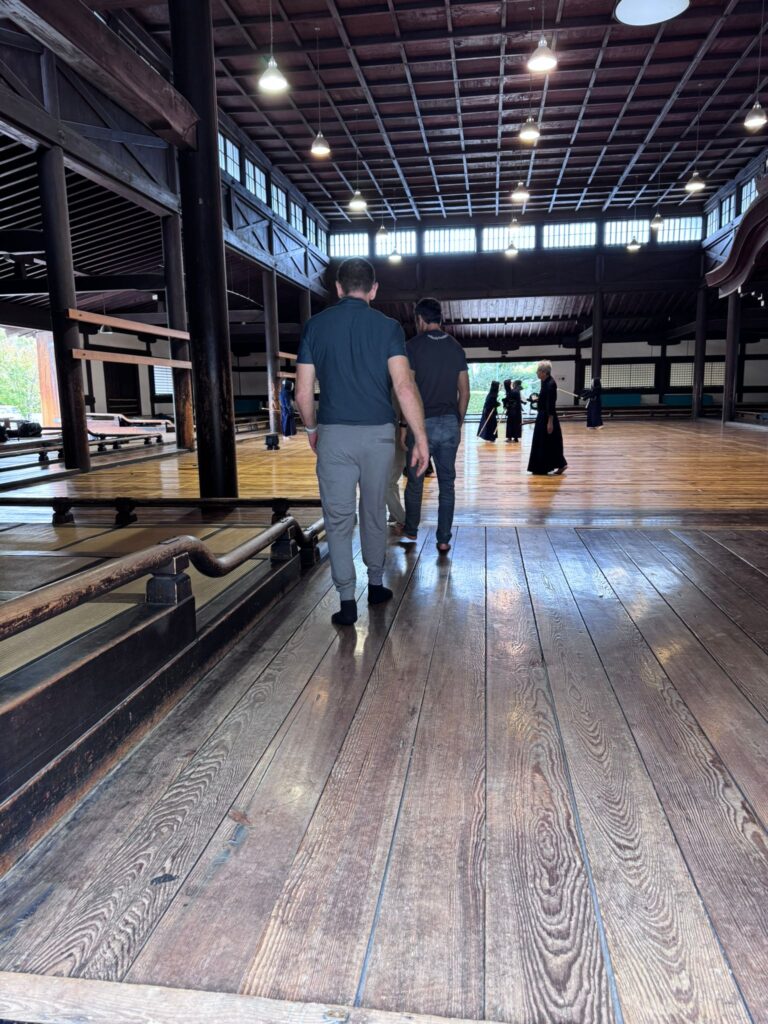
After the training, Pedro Valente and Ted Schwartz went sightseeing in Kyoto. Their first stop was the historic Nijō Castle, built in 1603. The castle holds great significance as the place where Tokugawa Ieyasu was appointed as the political leader of Japan, and later, where the last Shogun relinquished power to the Meiji Emperor in 1867. Walking through the 33 rooms of the castle, they observed the stunning architecture and artwork, including what Pedro described as “breathtaking paintings on the walls and ceilings.”
Next, they visited a Zen Buddhist temple, Nanzen-ji, and its sub-temple Konchi-in, built over 500 years ago. Inside the temple, they saw some of the first muskets brought to Japan from Portugal in the 16th century, which were on display. They also explored the temple’s five beautiful meditation gardens, feeling the serene atmosphere. The muskets are part of a historical exhibit, reflecting the exchange between Japan and the Portuguese during the 16th century, when firearms were first introduced to Japan.
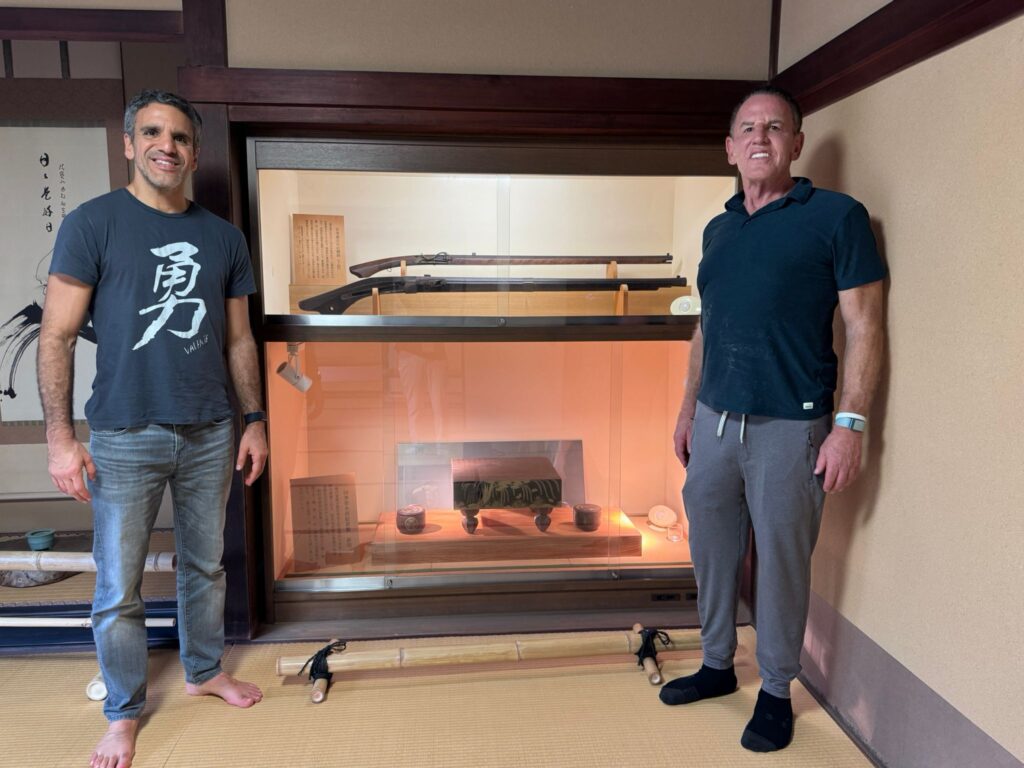
After a day filled with history and culture, Pedro Valente and Ted Schwartz returned to the hotel. They had another great meal at the hotel’s teppanyaki restaurant.
